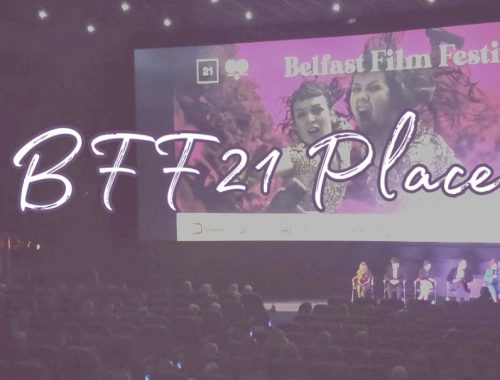Drafting a CV, Applying for and Finding a Placement
I started off my work-based learning module in the summer before term started by applying to multiple production companies in the hope that someone would take me on and into the ‘real world’ of work. However, before I could start applying for placements, I had to create a CV specifically related to my skills and experience in working in film and production. It is a great advantage that the work-based learning module allowed me to draft up an industry specific CV, as it gave me great insight and practice into what it is like to apply for jobs within the industry, and gave me more confidence with the prospect of applying for jobs after graduation. This blog reflects on my application process of finding placements using the Gibbs reflective cycle, from the beginning of drafting a CV, to applying to multiple placements, to finally successfully securing a placement.
[1]

Drafting a CV
My experience of the work-based learning module began back in June when I began to draft my CV in preparation of finding a placement before September. I began by creating a cover page, outlining briefly and concisely some of key qualities, who I was and that I was seeking a placement to gain hands-on experience in the industry. This is where I also included why I wanted to partake in a placement at the companies I applied for, to show I had done research on the companies and to show my genuine interest in working for their company. Outlining the reasons why I wanted to partake in a placement was advantageous as it allowed me to reflect on the reasons why I chose to do the work-based learning module and it solidified my confidence, excitement and enthusiasm for doing a placement and getting the opportunity to get hands-on experience of working with professionals within the industry.
Ultimately, having the opportunity to create a CV that is industry specific to film was a good experience as it allowed me useful insight and practice into the specifics of creating a CV for applying for jobs within the film industry, equipping me with the knowledge of how to create a film industry specific CV. This experience has given me more confidence in creating a CV and with the prospects of applying for jobs post-graduation, as I feel like I have a good understanding of what you need to include in a CV when applying for film industry specific jobs. I am very glad I have got this experience now whilst still in university as I feel like I won’t be as blind and overwhelmed when it comes to applying for jobs after graduation.
The struggles of actually finding a placement
Now that I had a CV it was time to actually apply for a placement. I researched some of the companies on the list of placement providers that the university provided and selected a few to send my CV to. I modified the cover page of my CV to fit each company, outlining why I was interested in doing a placement at their company and sent the emails off, stating my enthusiasm and interest in partaking in a placement at their company with my newly drafted CV attached. A week went by. Nothing. Another week. More silence. One of the companies did eventually email me back, however they told me that they had already taken other people on and that they had no space left, but that I was more than welcome to get in contact in the future if I wanted experience. Although this left me feeling deflated, it also gave me some hope and joy knowing that I had been offered a possible opportunity for the future.
Receiving this email made me realise that perhaps the other companies I applied for were in the same situation and had already accepted other people for a placement and did not have any space left. I returned back to the list of placement providers and picked a few more to apply for. By this time it was the middle of July and I was getting more and more anxious as we got closer to term that I would not find a placement in time.
However, thankfully a couple days later I received the much anticipated email. Chris from Sub-Culture Productions in Bangor emailed back about conducting a casual interview over the phone with him. Delighted with the prospect of finding a placement I agreed and we set a time for the phone call.
Interviews and Confirming the Placement
The day of the phone call quickly came around, and feeling of anxiety and the thoughts of messing up and losing the placement perpetuated my thoughts. However, it went surprisingly well. The conversation was very casual and I was instantly put at ease by Chris. We discussed the logistics of the placement and what the placement would entail, and we then agreed to meet up in person and for me to come into the office so we could further discuss the placement and meet each other in person.
At the in person meeting in Bangor, myself and Chris discussed what I would be doing on the placement, and told me I would get experience of working on set of productions, as well as helping with editing and managing and creating for their social media accounts. I left the meeting that day feeling very excited and positive about my placement, as it seemed I would get to gain a lot of experience in areas I was interested in, as well as learn new things I would not get to otherwise if I had not done work-based learning.
The experience of having casual interviews over the phone and in person was a good experience as it pushed me out of comfort zone and allowed me to gain experience of the types of questions employer may ask specific to film and production, allowing me to improve my interview skills. However, if I were to conduct these meetings again I would perhaps prepare a little more, as I did stumble on some questions, but ultimately I have learned from my mistakes and grown from them and I will be able to improve myself more for future interviews.
References
[1] University of Kent ‘Reflective Learning’ (2012), Available at: https://www.kent.ac.uk/learning/PDP-and-employability/pdp/reflective.html (Accessed: 26th November 2021)
The struggle was real/or was it?

Roles Reversed
You May Also Like

Breaking into the Film Industry: What You Know or Who You Know?
24 November 2021
In at the Deep End: Recording an Orchestra
26 November 2021
